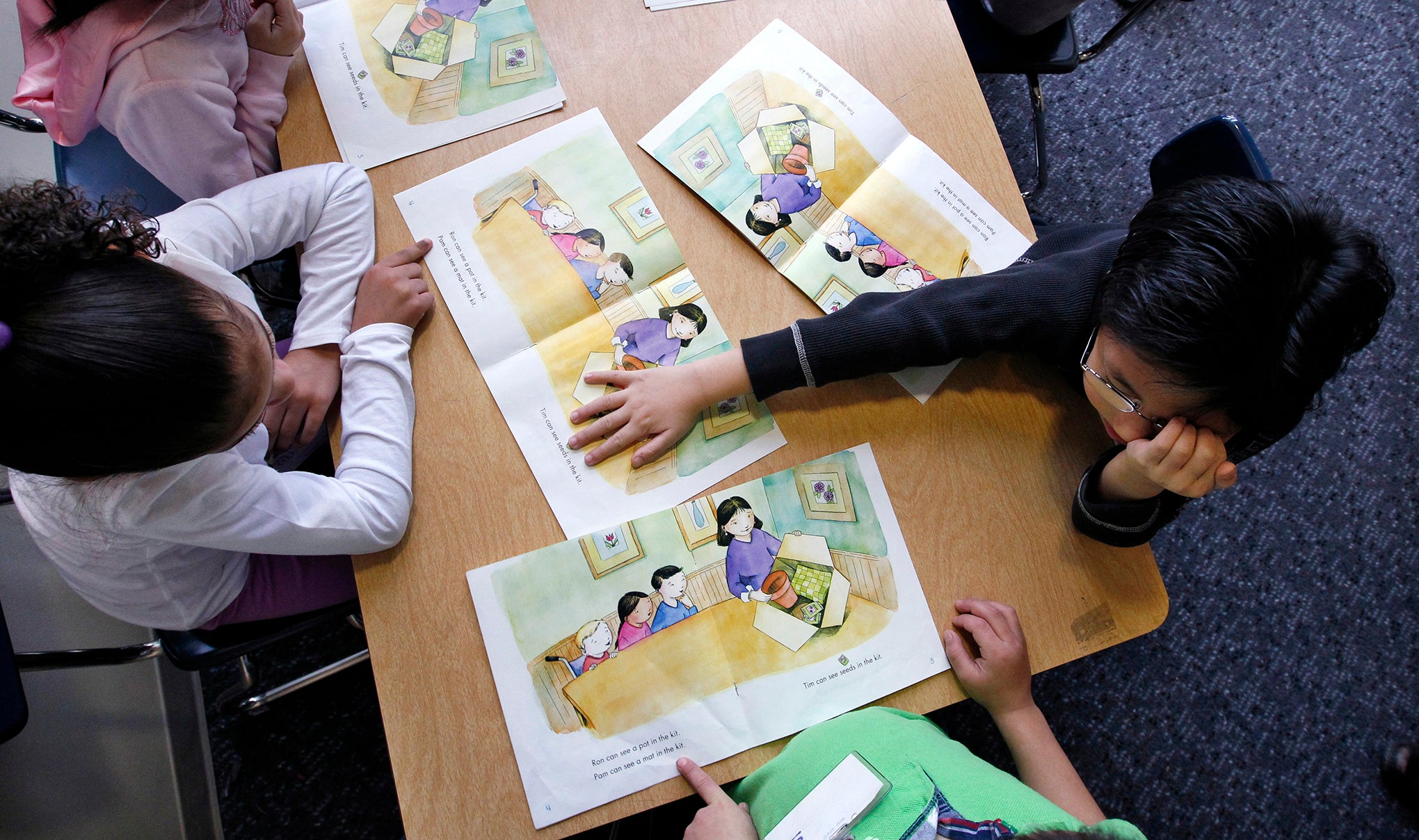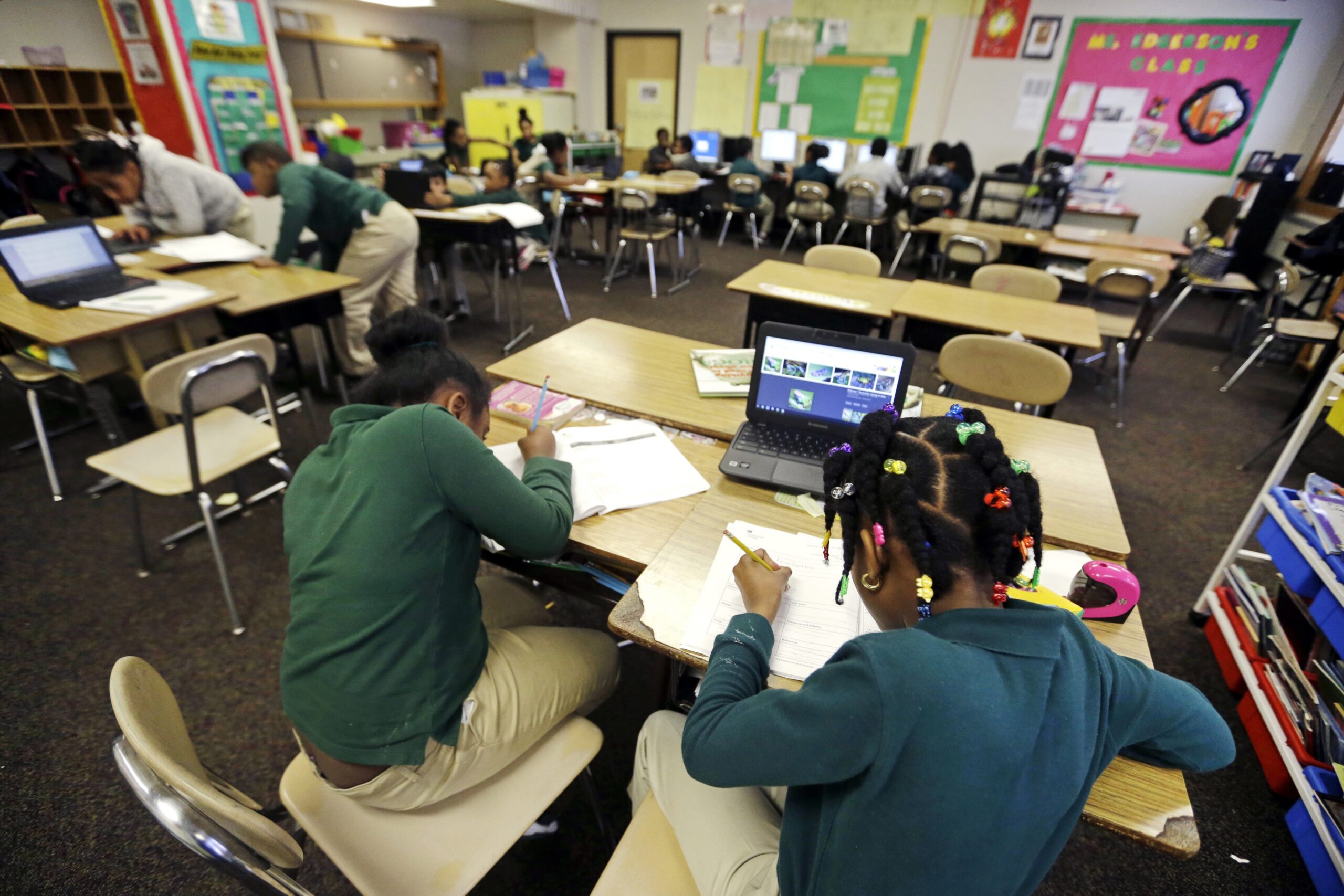In July, Democrats and Republicans celebrated when Gov. Tony Evers signed a sweeping literacy bill into law that promised to change how the state’s youngest children are taught to read.
The bipartisan idea, championed by dozens of other states, shifts students to phonics-based reading instruction for 4-year-old kindergarten through third grade.
Now, that bipartisan agreement focused on improving kids’ education has devolved into political battles and lawsuits focused on the governor’s use of his veto pen, and on money for reading programs controlled by the Legislature.
News with a little more humanity
WPR’s “Wisconsin Today” newsletter keeps you connected to the state you love without feeling overwhelmed. No paywall. No agenda. No corporate filter.
When the reading bill was approved, the Legislature approved a separate, nearly $50 million appropriations bill for implementation. That money would help school districts pay for the new curricula needed to change their reading programs, and for training for teachers who need to put the new rules into practice.
The disagreements began over how that money would be used, and who would decide how to use it.
Wisconsin allows its governors to use partial vetoes on appropriations bills.
Evers’ use of that power in February, prompted a lawsuit last month from Legislative Republicans asking the $50 million be withheld from the state Department of Public Instruction.
This week, DPI and Evers filed a counter claim saying implementation of the reading bill for the 2024-25 school year will be impossible.
“Every day of delay makes it increasingly difficult for schools to meet the requirements of Act 20 and makes it harder for students to learn to read, so they can read to learn,” said DPI Associate Deputy State Superintendent Tom McCarthy. “The department’s goal is to improve literacy education and outcomes for Wisconsin students, not to participate in a political or constitutional debate.”
The issue Republicans have raised has to do with Evers striking language allocating money for school boards and charter school compliance in the early literacy program.
The Republican lawsuit argues the changes “allow DPI to treat any money directed to it as money that can be used by the Office of Literacy for any literacy program that office deems fit.”
An Evers spokesperson said last month Evers was within his right to line-item veto the appropriations bill.
But on Tuesday, Senate Majority Leader Devin LeMahieu said the governor was using literacy funding “as a pawn in his effort to strengthen his veto power rather than doing the right thing for Wisconsin families.
When asked if withholding the money from DPI would affect implementation of the literacy bill, LeMahieu said if Evers acted legally, this would not be a discussion.
“Any delay in the implementation of the bipartisan literacy changes will fall squarely at the feet of the Governor,” LeMahieu said.
The Evers/DPI counter lawsuit comes at the same time Republicans in the Wisconsin Senate voted 22-9 Tuesday to override dozens of Evers’ vetoes.
Republicans hold a two-thirds majority in the Senate, making the veto overrides of the Democratic governor possible.
Wisconsin Public Radio, © Copyright 2025, Board of Regents of the University of Wisconsin System and Wisconsin Educational Communications Board.






